A previous installment of this occasional series on book production concerned a novel by Julian Barnes, The noise of time.1 The book was published in 2016 in London by Jonathan Cape, an imprint of Vintage Publishing, and in turn part of Penguin Random House UK.
One trouble with the hardback edition of The noise of time is that its pages are bound with an unbending polymer adhesive, rather than a water-based adhesive that enables good opening. In that book – and with, for example, all the hardbacks of recent years published under Penguin Random House’s Allen Lane imprint – this glueing trouble is compounded by the fact that the grain of the pages in these books runs at right angles to the spines. Open such a book, and it wants to close.
Earlier this year an exchange on Twitter with the designer Richard Marston threw some light on this state of affairs:

(Clays in Bungay, Suffolk, is one of the main book printers used by British publishers.)
The moral is that for good grain direction and – above all – for good glueing, a UK publisher would have to cross the Channel and find a printer and binder in Germany, the Netherlands, or elsewhere.
Last month I was surprised to find a hardback book from Jonathan Cape that shows an improvement. This is Fathers by Sam Miller. It was a text I was eager to read, and I picked it from the shelves of the local bookshop.
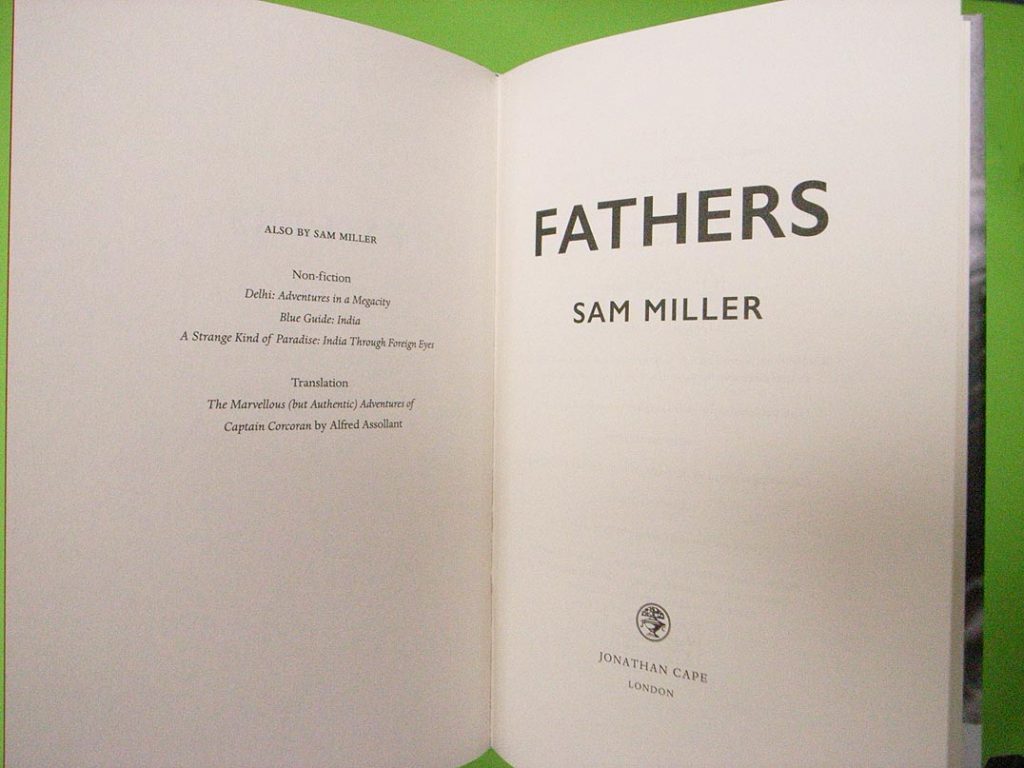
Astonishingly, it opened well; the grain direction was good.
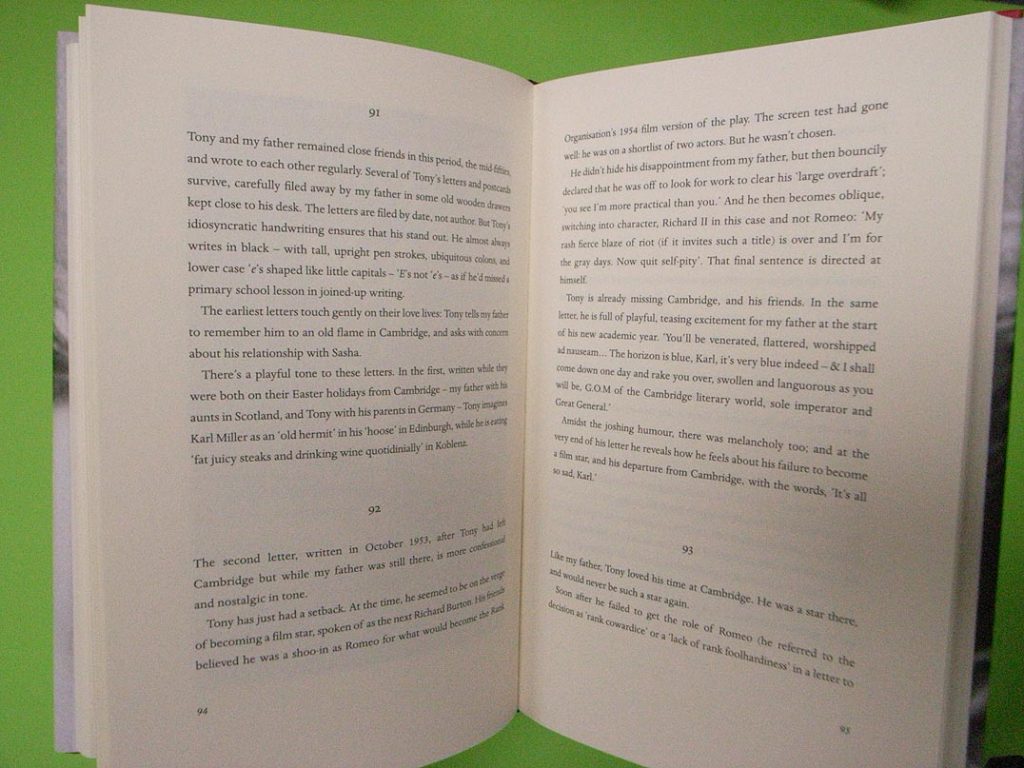
So instead of waiting eighteen months for the paperback to appear (at least its grain direction would be OK), I bought the book. Already in the shop, the colophon gave the explanation:
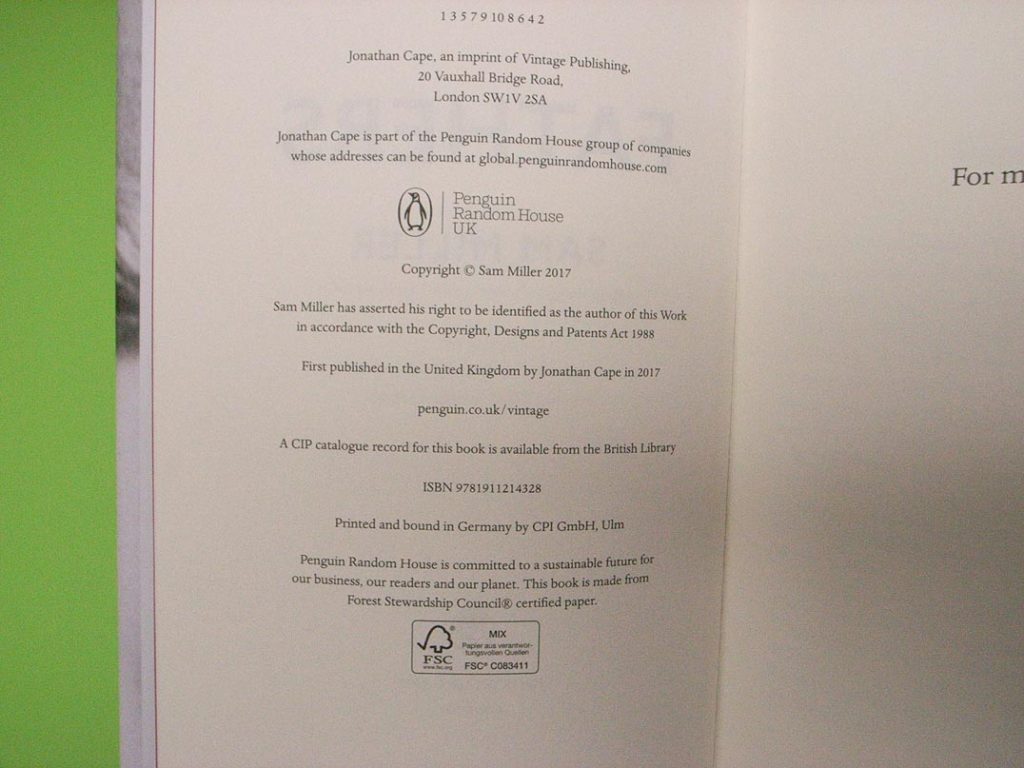
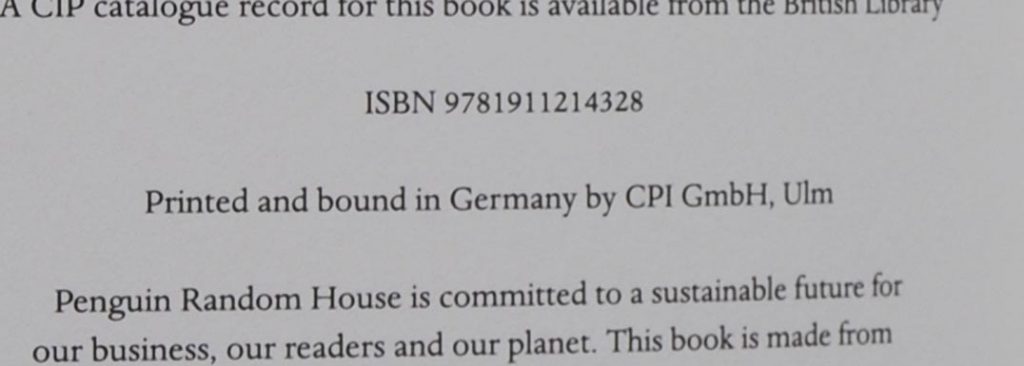
‘Printed and bound in Germany by CPI GmbH, Ulm’
This book, whose sections are not sewn but are rather cut and cold-glued, functions as the perfect reading machine.
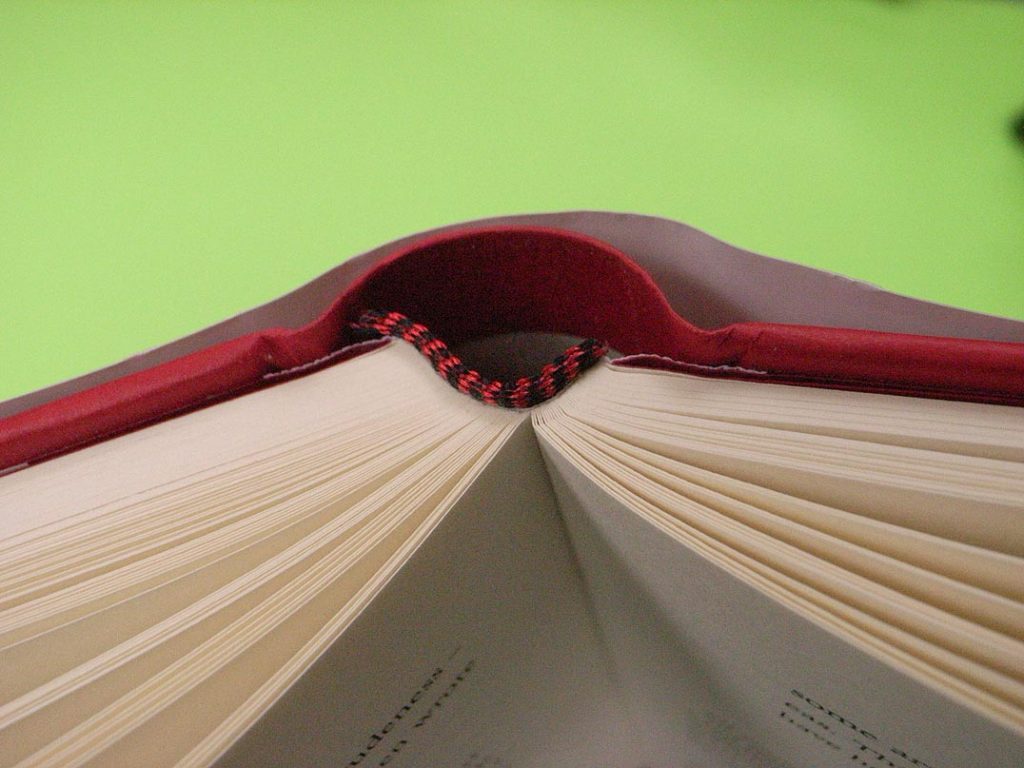
Just as the UK is gearing itself up to quit the European Union, one of its main literary publishing imprints is going there for book production. Good for Penguin Random House UK – and bad for British manufacturing industry.
————————————————————
Robin Kinross
————————————————————
Note